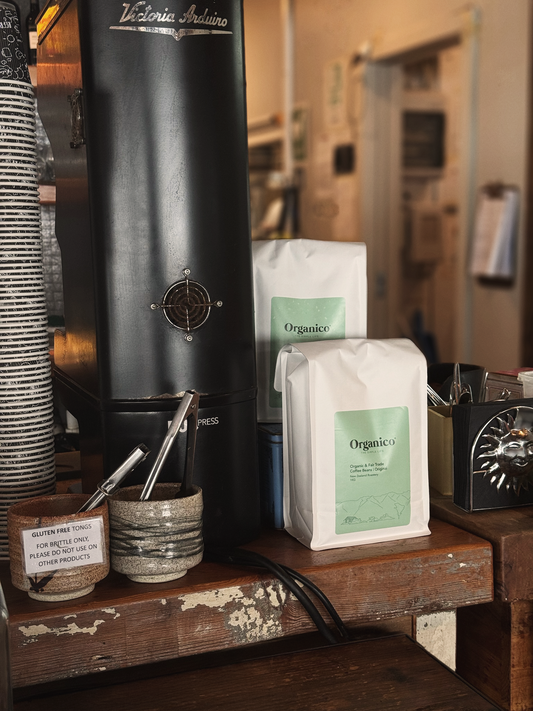In recent years, the use of plant milks has exploded. Many people are trying to reduce their intake of animal products and the specialty coffee market is no exception. Whether you choose non-dairy milk for ethical, health, or other reasons, it’s important to find one that doesn’t overwhelm the subtleties of your coffee.
Oat Milk
Oat milk is quickly becoming the leader of non-dairy milks to use in coffee drinks. It is made from a combination of oats, water, and sometimes canola oil. The result is a surprisingly full-bodied non-dairy milk with richness that rivals whole dairy milk. Oat milk is also prized for its fiber content. This non-dairy milk appeals to health-conscious customers because it contains relatively little fat without sacrificing the protein that you can get from dairy milk. Oat milk has a creamy taste that is akin to full-fat dairy milk in coffee. It has a smooth texture that won’t interrupt your coffee, which explains why it is growing in popularity so rapidly.
Almond Milk
Almond milk is one of the most popular nut milks to use in coffee. It comes in several flavours, and many manufacturers produce both sweetened and unsweetened varieties. Unfortunately, almond milk can curdle in coffee for the same reasons as soy milk: temperature and acidity. To combat curdling, avoid pouring cold almond milk into very hot coffee. Its reaction with the acidity of your coffee or espresso may vary between roasts and brands, so be sure to try several options if you want to make almond milk a mainstay on your beverage menu.

Coconut Milk
Prized for its thick texture and exotic flavour, coconut milk is quickly becoming a favourite dairy alternative for coffee drinkers. Using coconut milk in coffee can bring a tropical twist to your beverage without artificial flavours, and the naturally dense consistency of this non-dairy milk won’t water down your coffee. Coconut has a sweet, distinctive flavour that some people love. However, some of your customers may not like the strength of coconut milk’s flavour, and they could feel that it overpowers their coffee. Coconut milk creates a less dense froth with larger bubbles than dairy milk.
Soy Milk
Most coffeehouses are accustomed to using soy milk in coffee, as this type of non-dairy milk has been a popular option for many years. Soy milk is easily accessible in most areas, and its relatively affordable price makes it an attractive option for many businesses. Some soy milk curdles in coffee as a reaction to the acidity or hot temperature. Soy milks without preservatives may be more prone to separating in your customers’ coffee. If you think temperature is the problem, try pouring warm soy milk into your serving cup and slowly adding the coffee. Soy milk has a smooth and creamy texture with a relatively neutral taste. Many brands do not leave any noticeable aftertaste.
Rice Milk
Because this dairy alternative is both nut- and soy-free, it is growing in popularity for coffee drinkers with allergies and lactose sensitivities. If you want a hypoallergenic option for your coffee shop, rice milk could be the non-dairy milk for you.Rice milk has a very neutral taste that allows the flavour of your coffee to come through. However, its thin and watery texture does not give coffee the creamy consistency that some customers want with their beverage.
Check out https://www.webstaurantstore.com/blog/2428/milk-alternatives-for-coffee.html for more non-dairy milk information.


